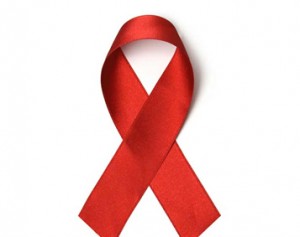Low public education said to be cause of high HIV prevalence
 Mr Sulemana Majeed, Upper East Regional Human Immune Virus (HIV) Coordinator, says a decline in public education on the disease, accounts for the high reported cases of HIV in the Region and the country as a whole.
Mr Sulemana Majeed, Upper East Regional Human Immune Virus (HIV) Coordinator, says a decline in public education on the disease, accounts for the high reported cases of HIV in the Region and the country as a whole.
“The low level of education nationwide has resulted in the high figures we see. The era where we used to have lots of education on television and radio stations about HIV and AIDS is no more,” he said.
Mr Majeed said even though the Ghana Health Service adopted the initiative to educate members of the public on the disease, mostly at community durbars, the COVID-19 pandemic frowned at public gatherings and that had affected sensitization at durbars.
“The only avenue we are using is through our Out-Patient Departments (OPDs) at the various health facilities, Antenatal and Postnatal Clinics where clients attend for services,” the Coordinator told the Ghana News Agency in Bolgatanga.
He said persons, who had no contact with the various health facilities, were likely not to get information on the disease and emphasized the need for the media to support the Ghana Health Service to propagate the messages on HIV and AIDS to the public.
Regarding the Bolgatanga Municipality as the hotspot for HIV infection per the Sentinel Survey (HSS) data, Mr Majeed indicated that the Regional figure for the virus was 1.9 per cent.
He said Nabdam, Bolgatanga East, Builsa North and Bongo Districts were also hotspots for HIV positive cases per their population.
He said the Nabdam District recorded 214 HIV cases per every 100,000 population, Bolgatanga East 175, Builsa North 152, Bongo 149 and in the Bolgatanga Municipality, 112 cases per population.
“Apart from the Bolgatanga Municipality, people may consider these Districts as villages, but the HIV situation in these Districts is high,” the Coordinator said.
He said there were medications for the management of HIV.
“We have Antiretroviral drugs that infected persons can take and look very healthy and so we encourage infected persons to continue with their medications.”
Mr Majeed expressed concern about the virus infection among adolescents, saying, “Our worry is the HIV situation among adolescents who are the country’s future human resource. As early as 14 years they are getting infected.”
He encouraged members of the public to get tested for HIV, saying, “it is good you know your status, and once you test and you are infected, you may not unknowingly infect people you consider as loved ones.
“Also those who feel they are negative, should not stigmatise those who are positive because nobody knows what the future holds as HIV infection is not only through unprotected sex,” he added.
Source: GNA
